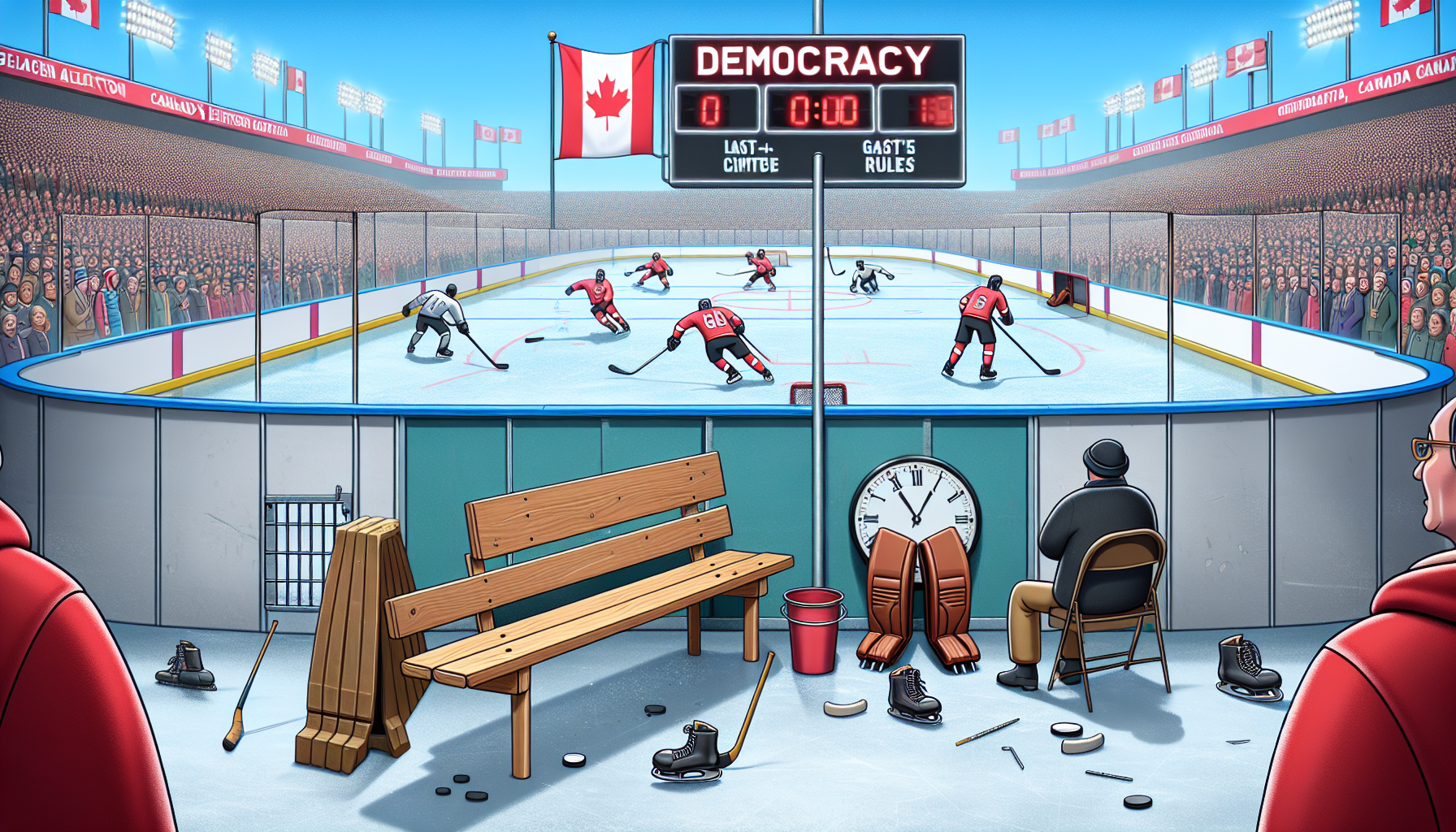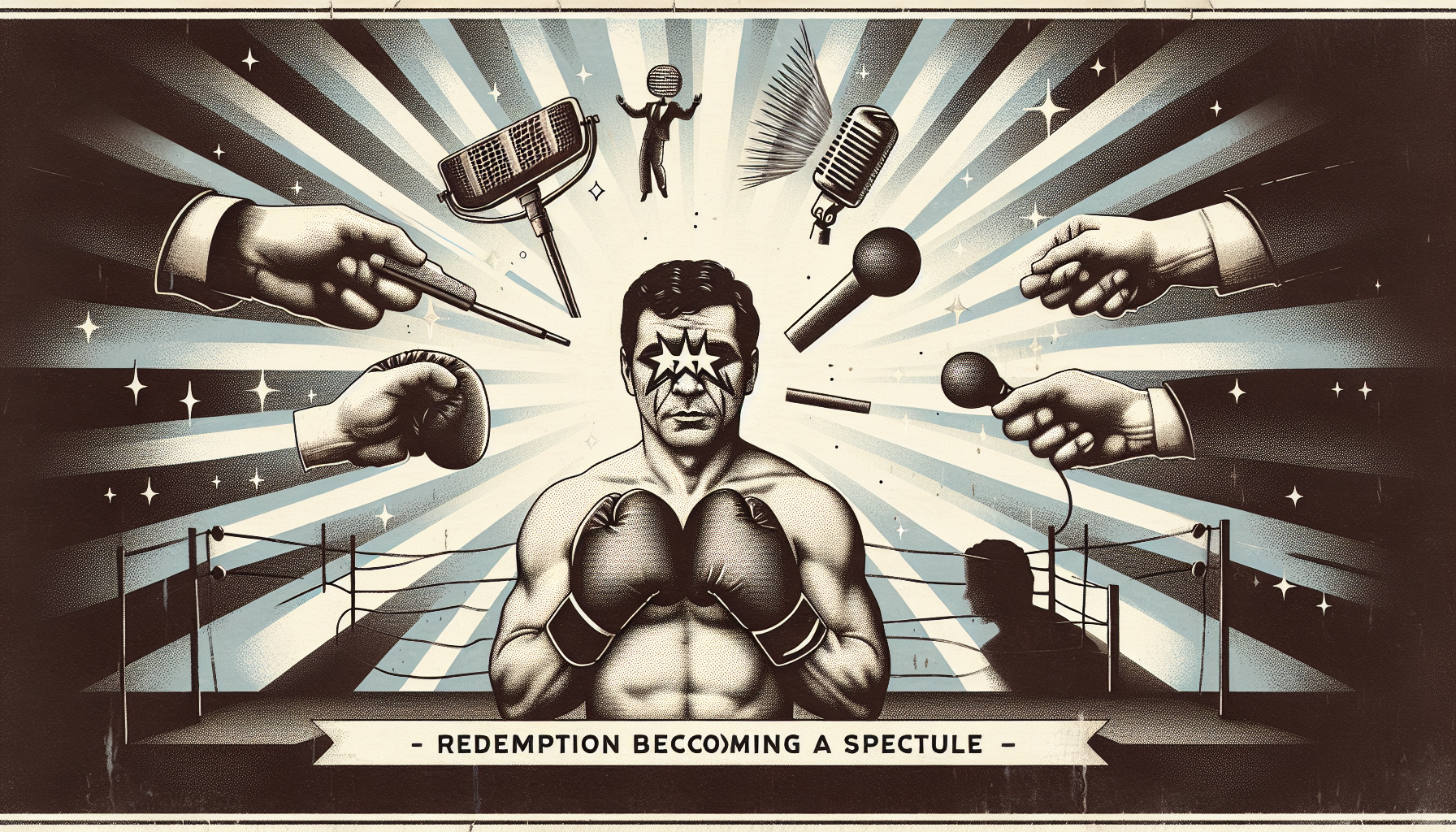Title: Offside in the Spotlight: The Green Party, the Canadiens, and Canada’s Debate on Democracy
Dear readers,
What does it say about a democracy when political debate yields to pucks and power plays? No, this isn’t a satirical sketch from The Beaverton. It’s real—and it’s telling. In April 2025, Canada chose hockey over head-to-heads, spectacle over substance, as the Green Party was abruptly ousted from the country’s two federal election debates.
Let’s step onto this peculiar political rink.
⛸️ The Moment Democracy Got Benched
Imagine this: the nation’s top political parties are prepping for a high-stakes, televised French-language debate. But there’s a wrinkle—the Montreal Canadiens are facing a crucial playoff match. And in Canada, where “Hockey Night in Canada” is practically a civic rite, politics may sway—but hockey? Never.
So, the commission in charge of organizing the debates moves the debate time to avoid a ratings clash with the Canadiens game. Yes, really.
Then—mere hours before the newly rescheduled debate goes live—comes another twist. The Green Party, led by co-leaders Jonathan Pedneault and longtime stalwart Elizabeth May, is abruptly and unceremoniously cut from both debates. The reason? The commission accuses the Greens of “intentionally” nominating fewer candidates than required to appear viable. Just like that, the Greens are sidelined, not by voters or rivals, but by administrators.
"The integrity of the debates must be protected," reads the Commission’s statement.
From the outside, however? The optics are troubling.
🟢 Democracy Isn’t a Luxury Suite
Some will argue the Greens undermined themselves. After all, they failed to field candidates in 90% of the ridings—a benchmark required to earn a seat at the debate table. But if we look a little deeper, we start to see something murkier—something more ideological than logistical.
The debates commission didn’t just enforce a rule. They did so last-minute. Abruptly. Without prior warning. Pedneault described it as “unjust and baseless.” And if his words sting of desperation, they also resonate with an unsettling truth: in Canada’s public square, visibility is currency—and the Greens just got defunded.
Let’s be honest: how many voters tune into debates because their minds are already made up? Few. These events aren’t just ceremonial jousts; they’re exposure machines. And for smaller parties, they represent a rare moment to move from the shadows of opacity into the floodlights of legitimacy. Cutting them isn’t just administrative housekeeping.
It’s narrative control.
🥅 When Playoffs Trump Politics
Of course, nothing in this story is more quintessentially Canadian than the bizarre prioritization of a hockey game over a democratic process.
To paraphrase NDP leader Jagmeet Singh (who supported rescheduling), “Hockey is in our blood.” And so it seems, Canadian politics must bleed around that sacred ice. This isn’t even unprecedented—back in 2011, the Bloc Québécois requested that debates avoid overlapping with a Canadiens–Bruins showdown. That request was granted then too.
But let’s ask what this really says. Are political debates in Canada viewed as essential national events? Or are they just one more program fighting for primetime against action replays and jersey sales?
The idea that democracy is a flexible appointment, but hockey is divine ordinance—it’s funny… until it’s not.
📺 Spectacle over Substance? Don’t Change That Channel
This little media melodrama reveals more than just Canada’s love for hockey. It exposes a hierarchy of values in public discourse: sports celebrities over statespersons, narrative consistency over ideological diversity, entertainment over civic engagement.
In this, Canada is hardly alone.
Remember when Marianne Williamson was excluded from certain U.S. Democratic debates for not hitting polling thresholds, despite campaigns surging in online engagement? Or in the UK, when debates excluded Liberal Democrats, forcing them to stream parallel “debates of the excluded” on social media?
These omissions all point to the same subplot: when decision-makers barricade the debate stage with institutional criteria, power consolidates. Voters hear fewer perspectives. Democracy contracts.
🧩 The Bigger Picture—and Why It Matters
Here’s the bottom line. The Green Party’s expulsion from the debates doesn’t just hobble one group’s electoral chances. It shrinks the marketplace of ideas. It reinforces the notion that governance is a two-party game with occasional guest stars.
And ironically, it happens at a moment when climate change (the Greens' specialty) is no longer tomorrow’s threat—it's today’s catastrophe. Greens may not be winning ridings wholesale, but they are shaping agendas globally. Their absence in this forum isn’t just a PR misstep. It’s a missed opportunity.
⚠️ Lessons in the Fine Print
As a nation, Canada just told on itself. In prioritizing hockey over political dialogue, in removing dissenters from homogenized debates, a mirror was held up—and the reflection showed an uneasy compromise between identity and idealism.
So let us ask:
Are we okay living in a country where a playoff schedule dictates civic conversation?
Are we comfortable with commissions making eleventh-hour decisions that reshape democratic access?
Is our idea of “integrity” inclusive of divergent voices—or is it just a synonyms for status quo?
Until next time, dear readers—whether you're tuning into center ice or center stage—remember: democracy, like hockey, requires team effort, clear rules, and fair play. And the game only matters when all the players get to skate.
Yours truthfully,
A Watcher of Ice, Ideals, and Institutional Sidelines ⛸️📺🇨🇦

